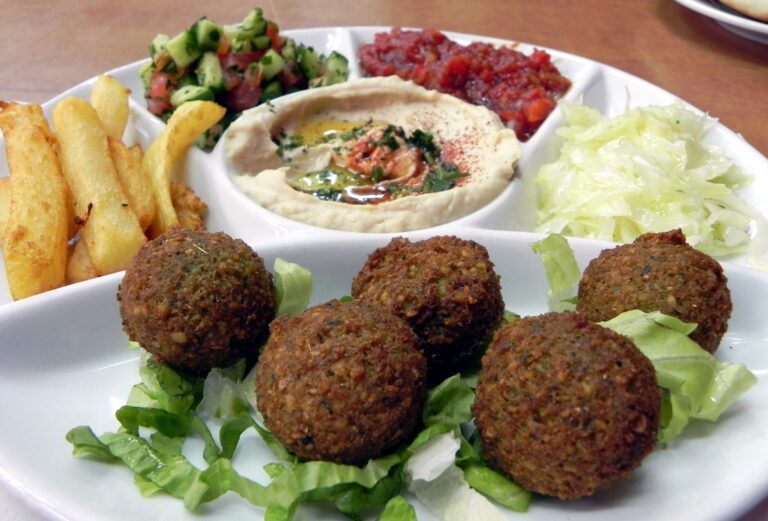Introduction: Israeli cuisine
Israel is a country with a rich cultural history, and its cuisine reflects this diversity of influences. Israeli cuisine incorporates elements from Jewish, Mediterranean, Arabic, and Middle Eastern cultures. It is known for its emphasis on fresh ingredients, bold flavors, and creative combinations. Israeli cuisine is also heavily influenced by the country’s geography and climate, with a focus on locally grown produce and fresh seafood.
The influence of Jewish food history
Jewish food history has played a significant role in shaping Israeli cuisine. Many of the dishes traditionally associated with Jewish cuisine, such as challah bread, matzo ball soup, and gefilte fish, have become staples of Israeli cuisine. The Jewish emphasis on dietary laws has also influenced Israeli cuisine, with many dishes adhering to kosher guidelines.
The impact of Mediterranean diet
The Mediterranean diet is also a significant influence on Israeli cuisine. Israeli cuisine shares many similarities with the cuisine of neighboring countries such as Greece, Turkey, and Lebanon. Vegetables, fruits, fish, and olive oil are all prominent in Israeli cuisine, as they are in the Mediterranean diet. This focus on healthy, fresh ingredients has helped make Israeli cuisine a favorite among health-conscious foodies.
Exploring the unique ingredients
Israeli cuisine also features a variety of unique ingredients that are not commonly found in other cuisines. For example, za’atar, a blend of herbs and spices, is a staple in Israeli cuisine. Sumac, a tangy spice made from dried berries, is also frequently used. Another unique ingredient is tahini, a paste made from sesame seeds that is often used as a condiment or as a base for dips and sauces.
The use of herbs and spices
Herbs and spices are a crucial component of Israeli cuisine, adding depth and complexity to dishes. Cumin, coriander, turmeric, and cinnamon are all commonly used in Israeli cuisine. Fresh herbs such as parsley, cilantro, and mint are also prevalent, adding freshness and brightness to dishes.
Conclusion: the diversity of Israeli cuisine
In conclusion, Israeli cuisine is a fusion of many different cultures, resulting in a diverse and exciting culinary experience. The influence of Jewish food history and the Mediterranean diet has helped shape Israeli cuisine, while unique ingredients and a focus on herbs and spices add depth and complexity to dishes. Whether you’re a fan of falafel, hummus, shakshuka, or any of the other delicious dishes that Israeli cuisine has to offer, there’s something for everyone to enjoy.

